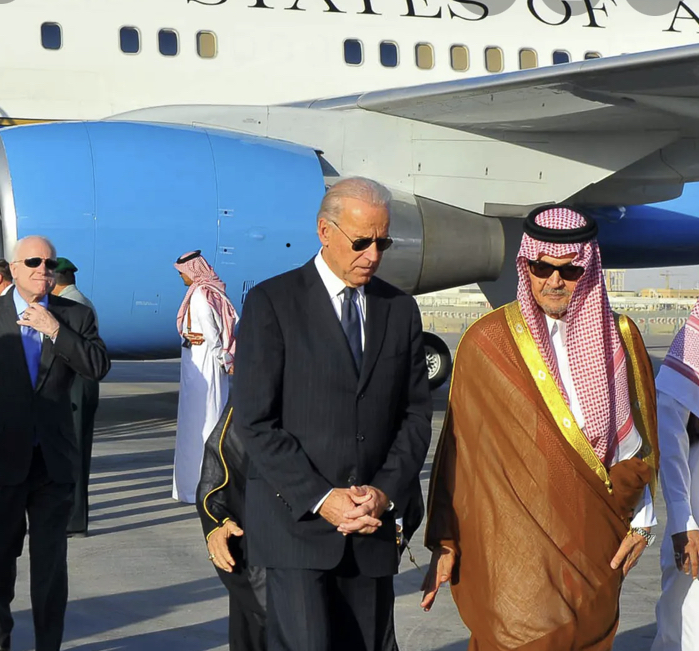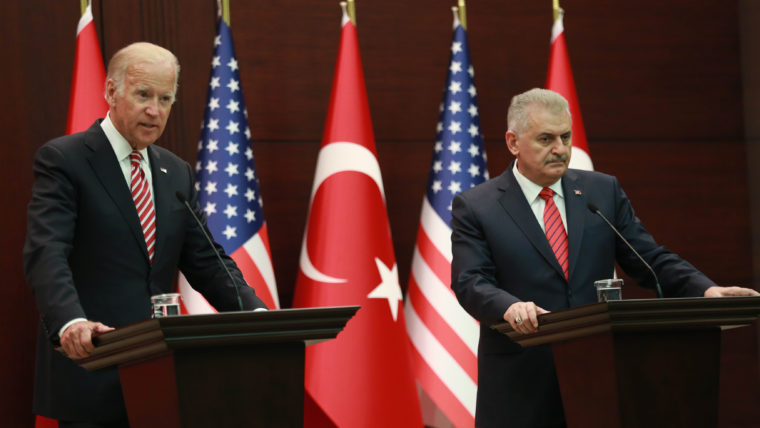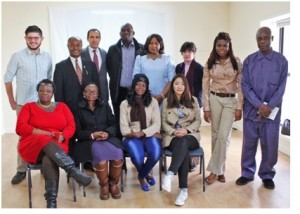By Robert Bernstein and Rachelle Abboud
A YouGov/Arab News poll of 3000 respondents in 18 Arab countries conducted in October 2020 to gauge the pulse of the region’s preferences between two U.S. presidential candidates, incumbent Donald Trump and challenger, Joe Biden reveals a mixed opinion of citizens of Middle East and North Africa towards the United States. The poll found that 49 percent of the participants believed that neither Trump nor Biden will be a good candidate for the Middle East and North Africa -MENA region. A remaining 40 percent cautiously expressed preference for now president-elect Biden, with 58% of the respondents agreeing that Biden must distance himself from the failed Middle East policies of the Obama administration.
The respondents did not have much respect for the policies of Barack Obama and there is a belief of many in the region that Barack Obama and his national security and diplomatic teams had a broad misunderstanding of the Middle East.
While Obama began his tenure with a prominent Cairo speech targeted to the Muslim World, his actions in the area were far less satisfying. These include his failure to adhere to his “red line” in Syria with the genocide that ensued thereafter, and a lack of support for Egyptian President Hosni Mubarak that led to a popularly elected administration of the Muslim Brotherhood which was subsequently violently removed and replaced by General Abdel Fattah el-Sisi. In addition, the campaign in Libya that led to the fall of Muammar Ghaddafi was a failure in the eyes of the Arab World. Particularly unfortunate was the subsequent civil war with its resultant governance chaos. The survey also showed that many Arabs think that Obama’s support of Nouri al Maliki in Iraq led to the rise of ISIS.
Ali Khedery, CEO of Dragoman Ventures outlined the failures and dissatisfaction: “If we take a quick tour of the region under Obama, you will recall that Obama intervened in Libya militarily, only to then abandon it and let it slip into a civil war and violent tribal conflict. He also abandoned (Egyptian President) Hosni Mubarak, not understanding the fact that the vacuum left would be filled by Islamists, the Muslim Brotherhood specifically.”
Opinions on the state of US, Israel, and Palestinian relations were markedly divided. Palestinians have little faith in Donald Trump to mitigate their issues given his complete advocacy for Israel culminating with both the movement of the US Embassy to Jerusalem in defiance of long established international consensus. While Arabs outside of the Israeli – Palestinian conflict see the US as having lost its status as an “honest broker” and as a result do not see their role in future negotiations even though the Palestinians still believe that America still holds the key to their leverage over Israel.
The poll results were telling in many ways on what the Arabs want from a United States’ foreign policy front. For one, containing Iran was a source of agreement among most respondents. The poll revealed that those surveyed continue to believe that Iran’s behavior in the region is a threat to Middle East and North Africa, and the world. When asked what the next US president should do about US relations with Iran, 33% preferred continued sanctions while 34% opted for reviving the nuclear agreement lost under the Trump administration, and the remaining 34% believed that the next US president needs to toughen any future nuclear agreement. In total, over 60% of those surveyed favored a tough stance against Iran. This position on Iran in juxtaposition with selecting Biden as the better candidate for the region is somewhat perplexing, if not contradictory. Unlike Trump, Biden would probably reenter some form of negotiations-tough or otherwise- with Iran to contain any nuclear aspirations that Iran might have expanded upon during the Trump era. This strategy is very much plausible especially when China emerges as a superpower whose reach has hovered over, if not landed in the MENA region. Keeping Iran close could mean keeping China at a safe distance.
Another vexing issue presented in the poll was the Palestine question. The poll showed great support among Palestinians (52%) for a bigger US role in mediating between Israelis and Palestinians while, surprisingly, 52 % of all respondents opposed such a motion. This result warrants some pause given that an overwhelming 89% of Arabs opposed Trump’s 2017 decision to move the US embassy to Jerusalem. Moreover, the normalization of relations between Israel and some Arab countries like the UAE and most recently Bahrain points to a possible change in the norms and attitudes in the political culture. The normalization of relations will reconfigure the landscape of geopolitical priorities and, by extension, shape the way forward when it comes to Arab-Israeli relations in general and the Israeli-Palestinian normalization process in particular. It is important to note here that a change in attitude towards normalization may not necessarily be a democratically-influenced choice for the people; but rather, it simply may be that when forced to choose between normalization and marginalization as a consequence of sacrifice for a bigger cause, most people who already feel disenfranchised and disempowered would choose the former in order to safeguard some level of stability in a place as contentious as the Middle East. Whatever the explanation, a follow up clarification or survey is in order.
How do we interpret these contradictions? What did the poll miss? For one, we could posit that perhaps the number of respondents who opposed a larger US role in the Israel-Palestine conflict did so out of caution. Given the track record of unequivocal support Israel has received from the US in the past, it is no surprise that many in the Arab world have come to realize that any future US involvement by any candidate is just an extension of more support for Israel. Another interpretation underscores more pressing issues for Arabs such as the real or perceived hegemony of Iran, terrorism, Covid-19, and the economy, some of which have taken precedent over the Palestinian cause in recent years.
This was not always the case. Part of the reason for this shift might have to do with the context and aftermath of the Arab Spring from which many Arabs emerged weakened only to later confront limited political alternatives to democratic governance such as Islamists, autocracy, or military rule. These alternatives existed within a larger, regional nexus of complicated sectarian and foreign ties and their grip on domestic politics were beyond the scope and control of the people who, in turn, sought security and resources through tribal and sectarian loyalties. When states fail to provide the basics, allegiance to state or nation falters. Whatever semblance of unity or security lost in the Arab Spring was found again only in the wrong hands.
The Arab Spring also dismantled some of the solidarity Arabs felt over the Palestinian cause due to the widening sociopolitical gaps between Sunni and Shiites exacerbated after the 2003 US invasion of Iraq and during the Arab Spring. Besides worsening tribal and sectarian ties, many saw the Arab Spring as having also tipped the balance of power in favor of Iran whose support for the minority Shiite “Crescent” across Lebanon, Syria, Bahrain, and Yemen has left some people, especially the Sunni population feeling vulnerable and marginalized. The fact that Bashar Al-Assad is still standing after world powers have vowed otherwise, is a case in point. The fear of losing power to a minority could serve as a realist explanation as to why many of the respondents preferred a stronger US response towards Iran. Perhaps the more tangible threat is not necessarily a nuclear Iran, but an emboldened, militarized Shiite opposition. Therefore, keeping Iran contained serves both the US and its Arab and Israeli allies in the Middle East. The immediate benefit in containing Iran means more security for both Israel and some Arab states, and in the long run, for the United States.
The issue of Iran and its actions in the region elicited a response that was quite strong; there is a concern about Iran and its expansionist goals to create the Persian empire of ancient times. The poll demonstrated that Arabs desire a continuation of the strong policies of President Trump towards Iran. These include sanctions, preparations for possible Iranian military attacks and containing Hezbollah. Additionally, the Joint Comprehensive Plan of Action (JCPOA) or “Iranian nuclear deal” as it is commonly known should not be revived in any form. Rather, President – Elect Joe Biden should seek a more comprehensive pact that covers the nuclear program , the missile development program and the cessation of exported terrorism by the Iranian irregular forces – Al Quds and the Iranian Revolutionary Guards Corps (IRGC).The killing of Qassim Soleimani was universally applauded.
The panelists surmised that obvious distinctions can be observed in the approaches of the last three US Presidents. George Bush was clearly an interventionist, while Obama tried to avoid having US troops involved in his initiatives; of course, Donald Trump is the clearest example of a transactional leader who thinks strong pronouncements and rhetoric can solve issues. There are two issues that will occupy the new president – China and the pandemic response. That is why there was a belief from the panelists that while the region is still of great interest to America, it will not have the primary interest of the new administration. In addition, younger Americans have moved more forcefully to recognize and embrace the Palestinian cause while moving away from automatic support for Israel.
Panel participant Robert Ford, former US Ambassador to Syria thinks that with the pandemic raging and other areas of the world occupying the US interests the Middle East will not have as great a focus for the next administration: “I don’t think President Trump or President Biden will make the Middle East a big priority. That means America certainly will be influential in the region, but it won’t be decisive — it does not even want to be decisive.”
Areas of positivity for the Arab world are the agreements for diplomatic relations between Israel and the UAE, Bahrain, and Sudan. The event panelists indicated that the agreements were the result of a series of difficult and exhaustive negotiations. In addition, survey participants believe that the US does not need to resolve conflicts in the region but move to empower the populace, especially the youth to assert solutions of their own. As in other areas, there is an overwhelming disappointment with the failure of good governance to take root.
The situation in the American heartland was clearly on the mind of the poll respondents. They listed White Supremacy as the main issue that will hobble the US in the next presidential term.
Clearly this survey will reinforce many ideas that many scholars articulate about the relationship of the Arab region and the United States. Some other opinions will open many American eyes.
Overall, what these findings illustrate is that citizens of the MENA region generally understand the power, reach, and limits of the United States. However, what these findings do not identify is exactly how and why a Biden administration is the better fit for the region. Is it because of the perception that the Democratic Party is more pro-MENA, or is it just a gesture of disapproval of Trump’s policies, and if so, for what reason(s)? Did the media have any decisive impact on the overall favorability towards Biden? If Iran was a top priority of concern for the respondents, why then was Biden the preferred candidate with the possibility of thaw in relations with Iran greater than under the Trump administration? Is there something that Arabs are not telling us?
Within the United States, the win for Biden can be more easily explained. For many voters, the 2020 US presidential election results have ushered in a sigh of relief, a restoration of hope, and a resuscitation of democracy. The Biden-Harris victory signaled a defeat of the inchoate Trumpism philosophy and a triumph for American ideals. For others, the democratic experience has never been more frustrating. What remains to be seen after the celebratory confetti reaches the hard, cold ground is how the Biden administration chooses to address the domestic and international fractures left behind by Trumpism. A post-Trump America will not be the same, and an electoral win for Biden might not be a sufficient victory to clear the rubble. The divisions are deep and wide enough that a rewriting of the social contract is in order-one that is based on healing, tolerance, and the strengthening of the trust in the democratic process. Biden and his team have to re-imagine and restore the American Century here and abroad in ways that strike a delicate balance between dealing with a pandemic in a changed world without changing the character and spirit of the United States. It will require a strong commitment to understanding and learning from the fractures that the Trump administration has exposed. While these fractures are not new, Trump merely exhumed them for all to see. They have strained the country’s social fabric in ways that if not strategically addressed will continue to rip at the seams. This is a critical time for America. After all the post-Trump dust has settled the question will still remain: Will this administration be able to effectively handle the narrowing of the gap between both the United States and the world and between divided constituents here at home? If anything, one would presume that any incoming US president would see this as an opportunity to first regain the America we all have come to admire. Making time for the Middle East and other international agendas would simply have to wait.
The sovereignty-sharing paradigm that the MENA became accustomed to is shifting, if not withering away. What that region needs to be reminded of is how history has proven time and time again that it rhymes, sometimes without reason. The United States will continue to pursue self-interest in its policies in the Middle East and elsewhere regardless of who is in the White House. The reality is neither trump nor Biden or any other future president for that matter will have a decisive impact on the region. The 49% of respondents who share this view are well aware that in order to enact changes, they must come from an internal consensus mechanism one through which Arabs can safely identify and can come to terms with what they actually want and what they do not want. Furthermore, at the crux of the Middle East political struggle is the peril of the power paradox: unchecked power creates indifference and indifference perpetuates power. Absent an understanding that no one is entitled to power but rather only eligible to exercise it, power-challenged societies will continue to resort to justify their domination over others based on the false precept of a superior identity. What Arabs need to do is re-imagine and rewrite their own social contract independent of foreign interference, sectarianism, extremism, violence, and most importantly, of entitlement.
The way forward is to keep in mind that the human person is most prone to constructivism when imagining and most prone to destruction when doing. Religion, skin color, ethnicity, sect, and gender are at the mercy of this paradigm and cannot in any discourse or society stand to take the blame for destructive behavior. In our pursuit of power, we use these attributes as pawns to denigrate and deny the humanity of others and when we attain power we use them again, but this time to build back up what we have already destroyed.
The survey was conducted by the research arm of The Arab News with the collaboration of polling experts YouGov. The survey results were discussed in a virtual forum that attracted speakers and participants from around the world. The event “Elections 2020: What Do Arabs Want?’ presented by Research & Studies unit of the Arab News featured a panel of individuals experienced in the region’s dynamics as well as active in social movements. The panel included participation from the sponsoring organizations and event partners including Center for Media and Peace Initiatives (CMPI) and Wayne State University.
Robert Bernstein and Rachelle Abboud are CMPI contributors







